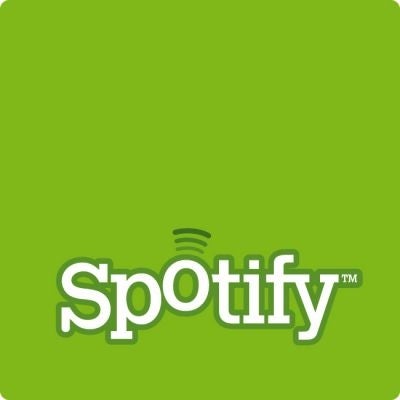Your support helps us to tell the story
From reproductive rights to climate change to Big Tech, The Independent is on the ground when the story is developing. Whether it's investigating the financials of Elon Musk's pro-Trump PAC or producing our latest documentary, 'The A Word', which shines a light on the American women fighting for reproductive rights, we know how important it is to parse out the facts from the messaging.
At such a critical moment in US history, we need reporters on the ground. Your donation allows us to keep sending journalists to speak to both sides of the story.
The Independent is trusted by Americans across the entire political spectrum. And unlike many other quality news outlets, we choose not to lock Americans out of our reporting and analysis with paywalls. We believe quality journalism should be available to everyone, paid for by those who can afford it.
Your support makes all the difference.After finally launching in the United States, Swedish online music star Spotify now has its sights set on building the world's largest music catalog.
"We want all the African music, all the Asian music, all the South American music," Spotify co-founder and chief executive Daniel Ek said Thursday at the Fortune Brainstorm Tech conference in this Colorado ski resort.
"Our goal really is to have all the world's music," added Ek, whose company currently offers over 15 million individual tracks for listening on computers or mobile phones.
Spotify launched in Ek's native Sweden in October 2008 and in six other European countries in February 2009, but its arrival in the United States was held up for years by licensing issues with the music labels.
After hammering out agreements with the four major record companies, Spotify launched in the United States last week with the ambitious goal of attracting 50 million US users within a year.
Spotify has 10 million users in Europe and is offering three options in the United States: a free, advertising-supported streaming service, an ad-free $4.99 a month plan for computer listening and a $9.99 a month plan allowing subscribers to download as many tracks as they want to an iPhone or Android device.
Spotify, which employs around 380 people in Stockholm, New York and London, currently has 1.6 million paying subscribers in Sweden, Norway, France, Finland, Britain, Spain and the Netherlands.
Ek said getting approval to launch in the United States involved proving to the major record labels that "if we create the right product - one which is better than piracy - then people are going to come.
"They wanted us to prove that the model actually worked at scale," he said, and "the results in Europe were encouraging."
Enjoy unlimited access to 100 million ad-free songs and podcasts with Amazon Music
Sign up now for a 4 month free trial (3 months for non-Prime members)
Enjoy unlimited access to 100 million ad-free songs and podcasts with Amazon Music
Sign up now for a 4 month free trial (3 months for non-Prime members)
Ek said Spotify has been met with overwhelming interest in the United States despite being available by invitation-only for now.
The invitation-only launch proved to be a good idea "otherwise our service would have crumbled from the sheer amount of people who wanted to get access," he said.
Ek said the "vast majority" of Spotify's revenue goes to artists and rightholders and declined to say if the company was profitable.
"We don't really focus on profitability, we're focused on growth," he said.
Ek was upbeat about the future of the music industry, saying "I just refuse to believe that the music industry - when people are listening to more music now than every before - that the music industry is going to decline."
The music industry's future, however, revolves around access to music and not ownership, he said.
"If you think about the history it's really been around how you need to buy this record, you need to buy this album or you need to buy this song," Ek said. "And what Spotify is saying is 'ownership is great but access is the future.'"
He spoke of a "very different" model about access to music, not just selling units.
"People just want to have access to all of the world's music," Ek continued. "People want to share a song and that's the song that matters to them in this second. They want to discover music through their friends.
"That's really something people are prepared to pay for whether it's by your time - watching advertisements - or paying for music."
Ek said he viewed Spotify as "complementary" to Internet radio Pandora, which has 100 million US users, and expressed confidence it could stand up to online music ventures by technology giants Apple and Google.
"We just focus on music," he said. "I think ultimately companies that do one thing and try to do it really well often succeed much better than companies that try to do 50 things at once."

Join our commenting forum
Join thought-provoking conversations, follow other Independent readers and see their replies
Comments